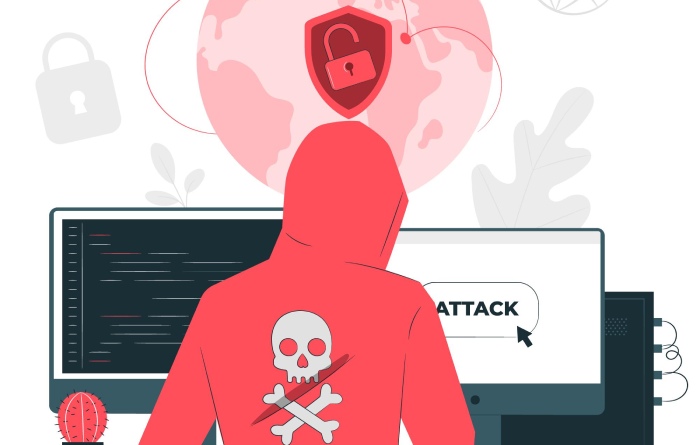Ambient Light Spying, Cybersecurity Prices Drop, Euro 2024 Threats

Threat actors can soon tip-toe into your living room if you fail to keep yourself updated about the latest happenings around the tech world. Knowledge and precaution are the only two things that can keep you safe from cyberattacks.
That’s precisely why we bring you the latest news from the world of cybercrimes every week. This week, you will get to know how the ambient light sensors can lead the threat actors to your bank account. Also, today’s edition will cover the details around Euro 2024 cybersecurity threats as well as the dwindling prices of cybersecurity systems.
Stay glued to your screen and keep reading to learn more about cybersecurity to understand the significance of email authentication measures such as SPF, DKIM, and DMARC.
Ambient light sensors can help cyber spies creep into your place!
Do you love those ambient light sensors in your smartphone? With this useful feature, you can inadvertently allow threat actors to spy on your device.
And no, this has nothing to do with the never-ending battle between Apple and Android devices. Any and every smartphone with ambient light sensors is vulnerable to cyberattacks.

The feature is generally used to adjust screen brightness as per the amount of ambient light in the surroundings to offer a soothing and comfortable vision to your eyes.
However, as per an MIT report, these light sensors can actually capture intricate images of user interactions, thereby leading to privacy threats for the users. The team of researchers used a computational imaging algorithm to bring more clarity to the potential cyber risk.
These ambient light sensors are in fact capable of recording user gestures secretly. Since the sensors do not need any third-party app to record the user data, users don’t really realize the risk associated with the feature. The MIT researchers believe that these ambient light sensors are capable of recording user’s touch interactions such as swiping, scrolling, and so on.
Apart from tracking user’s touch gestures, these light sensors can further give away partial facial information to threat actors.
Cybersecurity prices go down because of excessive competition out there in the market!
With cybercrimes on the rise across the globe, more and more cybersecurity systems are coming up every day. That’s precisely why the prices of cyber insurance setups are going down steadily. Over the last two years, the cost of cyber insurance has plummeted significantly, thereby making it easy for organizations as well as individuals to embrace 360-degree cyber protection. The majority of cyber insurance companies are happily offering top-tier services such as protection against data breaches and ransomware attacks at affordable price ranges.
Despite the spike in cyberattacks around the globe, the dwindling prices are a result of excessive competition. Also, improved awareness and enhanced cyber hygiene are other factors that have contributed to this gradual decline in prices.
Andrew Braunberg, an analyst at Omdia, believes that better evaluation of cyber risk by insurance companies is also significantly lowering the prices of cyber insurance. Carriers can conveniently assess cyber risks for their prospects and thereby come up with coverages accordingly.
Cyber insurers believe that the increased number of claim frequencies will definitely reverse the situation and rewrite the market rates eventually in the future.

Euro 2024: the latest point of attraction for threat actors
Euro 2024 has finally got its 8 best football teams, contending for the winner’s trophy. With this, there has been a sudden surge in the number of cybercrimes posing threats to fans as well as the organizers and their team members.
Threat actors are accessing and publishing sensitive data, such as user credentials, on the dark web. Most of the compromised credentials belong to naive consumers. However, there are also high chances of employees using their work email IDs to access one service or another, which further puts their company system at risk.
Experts have suggested that corporate employees use only their personal IDs to access services. Using the same password for both corporate and personal IDs can lead to severe cyber damage beyond repair.
A link has been established between the DDoS attacks and a group of Russia-based threat actors. As a result, the Russian team has been prohibited from participating in the soccer tournament.
Cyberattacks witness a significant shift everytime during major sporting events. Right after the Euro 2024, cyber experts expect a spike around the Summer Olympics 2024 as well. They are expecting different types of scams, such as ticket frauds, publishing of credentials, malicious apps, and files etc. As a means of setting out a strong statement, it has been decided that although Belarus and Russia will be allowed to participate in the Summer Olympics 2024, they will have to do so as neutral participants, sans any emblem or flags.






